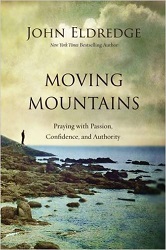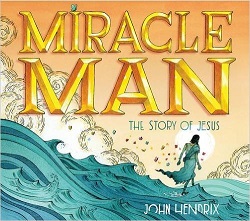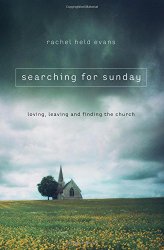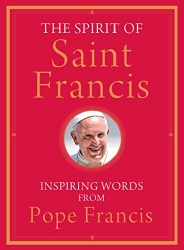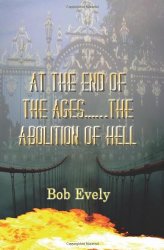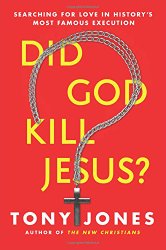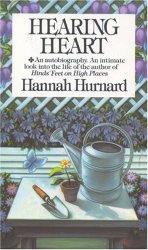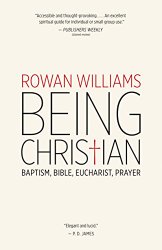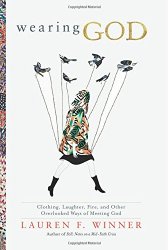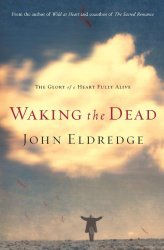Review of Moving Mountains, by John Eldredge
Praying with Passion, Confidence, and Authority
by John Eldredge
Nelson Books, 2016. 248 pages.
Starred Review
My church Small Group went through this book this year, and we’ve been richly blessed.
Moving Mountains is a book about prayer, and praying effectively.
We have embarked on the most exciting story possible, filled with danger, adventure, and wonders. There is nothing more hopeful than the thought that things can be different, we can move mountains, and we have some role in bringing that change about.
As in his other books, John Eldredge reminds us that we are at war – but God has given us authority in the battle.
The Scriptures are a sort of wake-up call to the human race, a trumpet blast, to use Francis Thompson’s phrase, “from this hid battlements of eternity.” One alarm they repeatedly sound is that we are all caught up in the midst of a collision of kingdoms – the kingdom of God advancing with force against the kingdom of darkness, which for the moment holds most of the world in its clutches. Is this your understanding of the world you find yourself in? Does this shape the way you pray – and the way you interpret “unanswered” prayer?
The author also points out that God is growing us up. He’s teaching us to use the weapons He’s given us by throwing us into the battle.
Now, if you believed both assumptions, if they were woven into your deepest convictions about the world, you would want to learn to pray like a soldier wants to learn to use his weapon, like a smoke jumper wants to learn survival skills. We really have no idea what sort of breakthrough is actually possible until we learn to pray. Perhaps we, too, will be ending droughts and stopping wildfires.
With that background as to where we’re going, John Eldredge doesn’t leap right into prayer of warfare. He lays the groundwork, looking at our beliefs about God. Here’s a moving section:
A slave feels reluctant to pray; they feel they have no right to ask, and so their prayers are modest and respectful. They spend more time asking forgiveness than they do praying for abundance. They view the relationship with reverence, maybe more like fear, but not with the tenderness of love. Of being loved. There is no intimacy in the language or their feelings. Sanctified unworthiness colors their view of prayer. These are often “good servants of the Lord.”
An orphan is not reluctant to pray; they feel desperate. But their prayers feel more like begging than anything else. Orphans feel a great chasm between themselves and the One to whom they speak. Abundance is a foreign concept; a poverty mentality permeates their prayer lives. They ask for scraps; they expect scraps.
But not sons; sons know who they are.
Before he talks about praying for others, he covers our authority in Christ.
We really thought this life was simply about getting a nice little situation going for ourselves and living out the length of our days in happiness. I’m sorry to take that from you, but you and I shall soon be inheriting kingdoms, and we are almost illiterate when it comes to ruling. So God must prepare us to reign. How does he do this? In exactly the same way he grows us up – he puts us in situations that require us to pray and to learn how to use the authority that has been given to us. How else could it possibly happen?
After talking about prayers of intervention, the book goes on to talk about consecration and about daily prayer to align ourselves with God’s purposes. Then it covers prayer for guidance, listening prayer, praying Scripture, warfare prayer, and inner and outer healing. The final chapter talks about outcomes that are not what we had desired.
I love this reminder:
Life wins. Sometimes now, especially if we will pray. But life wins fully, and very soon.
Just as we must fix our eyes on Jesus when we pray, we must also fix our hearts on this one undeniable truth: life will win. When you know that unending joy is about to be yours, you live with such an unshakable confidence it will almost be a swagger. You can pray boldly, without fear, knowing that, “If this doesn’t work now, it will work totally and completely very soon.” We can have that kingdom attitude of Daniel’s friends, who said, “God is able to deliver, and he will deliver. But if not . . .” we will not lose heart. Period.
As we worked through this book, our Small Group found ourselves getting opportunities to practice what we were learning. We saw some mighty examples of God working. And we feel like we’re only at the beginning of our journey.
I highly recommend this book for personal study, but especially for group study if your group is ready for an adventure together.
randomedheart.com
thomasnelson.com
Find this review on Sonderbooks at: www.sonderbooks.com/Nonfiction/moving_mountains.html
Disclosure: I am an Amazon Affiliate, and will earn a small percentage if you order a book on Amazon after clicking through from my site.
Source: This review is based on my own copy, purchased via Amazon.com.
Disclaimer: I am a professional librarian, but I maintain my website and blogs on my own time. The views expressed are solely my own, and in no way represent the official views of my employer or of any committee or group of which I am part.
What did you think of this book?
